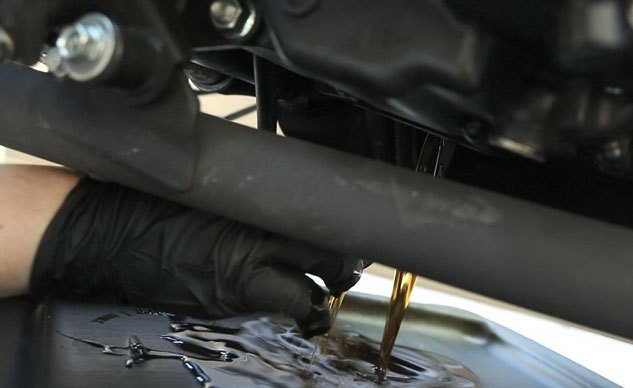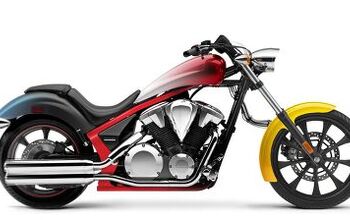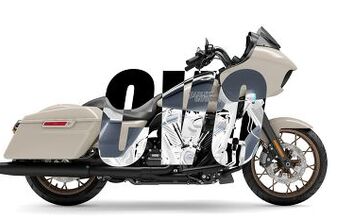Do I Really Have To Change My Oil Every Year?
AskMOAnything: Because I only put on 1000 miles a year.
Dear MOby,
I just saw your answer regards oil change. My manual says that I need to change oil every 3000 miles. But I only ride about 1000 miles per year (very short commute). By the book, I need to perform oil change every three years. Do I really need to change oil every year? Is it okay to change oil every three years, just because I don’t ride that much?
Thank you
Jay
PS: Just to make myself comfortable, I do oil change once a year.
Dearest Jay,
You’re doing the right thing to change it every year. Every owner’s manual I’ve ever seen says X amount of miles (8,000 miles for the Honda CB300F manual I’m looking at now) or once a year between changes. And even the makers of super-zoot synthetic oils like Mobil 1 say it can go for 15,000 miles or one year.
What goes on, theoretically, is that if your oil never gets nice and hot – which it won’t do if you’re only riding short hops – the moisture from condensation and other combustion byproducts that wind up in your oil never get a chance to burn off and/or evaporate back out of the oil. And that’s not good. Then again, some experts say condensation isn’t a problem at all. Our man Evans says, why not make everybody happy, including yourself, and just take the long way home every couple of weeks?
Then again, nobody ever went broke mistrusting giant oil companies. SAE Paper 98144, available here if you have $27, “documents the development and testing of new synthetic engine oil technology under extended service intervals of up to 25,000 miles or three years. Exceptional performance has been demonstrated in industry standard North American (API) and European (ACEA) engine tests, as well as non-standard tests such as extended length engine tests, vehicle fuel economy retention tests, high mileage chassis rolls tests, and extended oil drain over-the-road vehicle tests under a wide range of driving conditions.”
This paper also contains the so-called “Aunt Minnie test”, in which a 3.1-liter automobile engine was run for 7,000 miles over a period of six years, two very short hops per day, on the same synthetic oil which never got up to optimum temperature. At the end of the six years, the engine was in fine shape and so was the synthetic oil, according to various online synopses.
But that’s a car, not a motorcycle, and your bike’s engine, in addition to working harder and spinning faster, probably has a wet clutch which also helps contaminate and wear out its oil.
Our most responsible advice would be to change your oil at least once a year, perhaps saving some money by using less-expensive dinosaur oil which meets your bike manual’s specification (probably SJ MA). If you despise performing the oil-change ritual, consider pouring in more expensive synthetic stuff (also with the correct ratings) every two years and be sure to check oil level every now and then of course. Good luck and let us know if your engine blows up.
Here, free of charge for your enjoyment, is an Evans Brasfield story complete with video, of how to change your oil the right way.
Previously in AskMOAnything:
When will my Battery Die?
Why Do OEMs Use Ball Bearings In Steering Heads?
What’s Up With The Ducati Sixty2?
Why Do OEMs Use Ball Bearings In Steering Heads?
Send your questions to AskMoAnything@motorcycle.com; send your complaints to 1600 Pennsylvania Ave, Washington, D.C. If we choose to answer your question and get it wrong, consider it a valuable life lesson that’s absolutely free of charge.
More by John Burns




























Comments
Join the conversation
Anyone use or have used Ravenol oil for your superbike?
I once took a motorcycle repair course. The instructor's contention was that the presence of water condensation in the engine as a result of short trips in which the engine doesn't run long enough at normal operating temperature to burn out the H2O. The H2O then combines with the incompletely burned hydrocarbons (no engine is 100% efficient) to form sulfuric acid which then attacks and breaks down the surface of the metals, like journal bearings for instance. I use full synthetic for its robust performance but change it more often than recommended in the manual and certainly every year. Especially in a temperate climate where I live, it's best to change the oil and filter before one last adequate ride before winter storage so the dirty oil is not sitting in the engine during the several month downtime, IMHO.